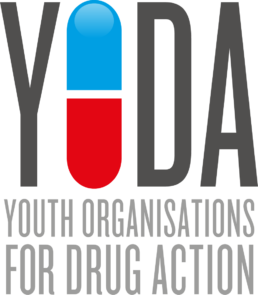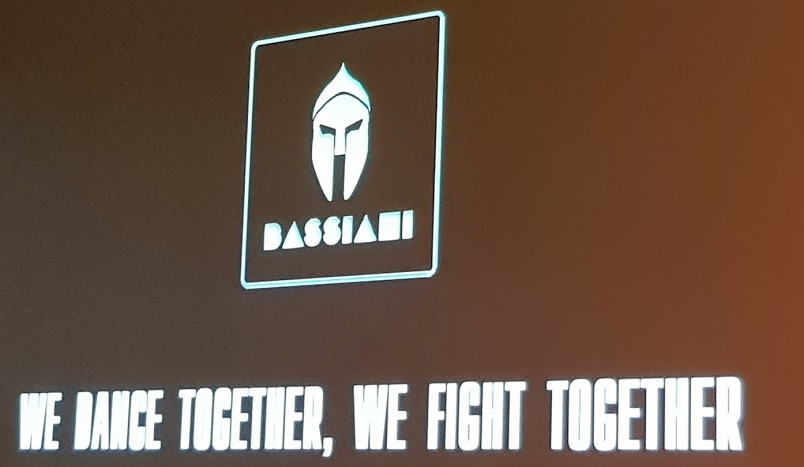test
This was the second year of the Stadt Nach Acht Nightlife conference based in the capital of uber-cool, Berlin. Last year’s premiere was well organized and this year was nothing short of incredible. Although it’s still working on increasing diversity in the decision making process, as well as the panels, the unique features of this conference makes it a trailblazer in incorporating all levels of activism; from street outreach workers to policy makers, encouraging an atmosphere of unity and support.
Tl:dr- Berlin Nightlife conference is probably the coolest conference you will ever go to. No matter what your level of interest, you will certainly be captivated by the atmosphere. By the end you are guaranteed to walk away feeling recharged to fight alongside new friends in the community. The only bummer is readjusting to reality when you get home…

Don’t expect the boring old conference format here…
Many conferences, including in the drugs field, are often painfully slow at demonstrating the progressive ideals based on the research presented. Stuffy suits speaking about issues which, on the face of it, make you question how representative they really are. Issues around substance use, trends and supplies are very dynamic however large institutions are often slow at responding to the rapidly shifting challenges that emerge. The apparent disconnect with on-the-ground realities or lived experiences, sometimes makes people working directly with those affected question the value of these exclusive echo chambers. These conferences are often expensive to attend, repeat the same old mantras and contain homogenous panels of the same old experts speaking about the same old issues over and over. There is some hope that we are making progress though. This year’s EMCDDA hosted Lisbon Addictions conference took a huge step in the right direction by incorporating the TWIST training programme to support young and emerging professionals into the addictions field. It’s incredibly important to support new talent, new ideas, new faces and to not only challenge existing norms, but to actively change our mindsets and actions based on the evidence we have. Because of the range of speakers, topics, venues and the atmosphere created, it was especially refreshing to attend the Nightlife conference which genuinely tried to practice what it preached.
What were the topics of this year’s conference?

This year’s conference covered 4 main themes: Nightlife Culture, Health and Safety in Nightlife, Nightlife Economy and Urban Nightlife Development. There was a huge range of associated activities and side events, including the Vienna CheckIt drugs testing unit plus a series of films screened in different clubs across Berlin. Each film focused on the relationship between nightlife cultures and broader political/social struggles in countries around the world. All of these elements had a unique value which gave the conference depth, it felt real. It was easy to connect with the content presented, even if it was an experience from an entirely different culture, because the speakers were very down to earth and approachable and there were plenty of spaces to socialize. Come on, where better to host a conference on nightlife than in da kloob?
Take a quick peek at the conference programme and presentations to find out more.
Rave Diplomacy!


This year included a particular series of talks and events around the theme of Rave Diplomacy: the concept of underground music culture being shaped by social justice issues and political activism and vice versa. Music collectives from the around the world including Palestine, Jordan, Turkey, Georgia, Brazil and Tunisia came and spoke about how they’re using their own underground music scenes to challenge conservative ideologies. It’s still dangerous for these collectives to exist under such oppressive regimes. Authorities can create and enforce policies to restrict parties such as dictating the timings (e.g. parties being forced to shut down at midnight) or limiting spaces available to host events. Each presenter, no matter what country, shared the same experiences: their means of resisting against oppressive regimes with harsh punishments for being different, for example being LGBTQ, was through rave. Rave is political. On the one hand these parties are inclusive of marginalized groups, keen to provide a safe space away from fear of persecution, however they still needed to maintain varying degrees of exclusivity to ensure the safety of the people protected within.

In areas under or post-conflict, the rave subcultures that emerge provide a safe space to dance away the blues. Irena Molnar of YODA highlighted this point when she said ‘how rave subculture formed as an identity though crises in post war Serbia’. In the 90s, youth organized parties were created in protest of the Serbian government they had. Even though borders were still closed and there was no freedom of movement out of the country, the people created their own spaces to be free, at the rave. Pirate radio stations and the internet changed everything and allowed the exchange of influences across the borders. Irena interviewed DJs and when asked about the time of bombings they would say it was an amazing time: ‘We are suppressed and repressed but we are going to dance the shit out of this place…. If we are going to die, we are going to die dancing!’ Over time however, increasing commercialization and corporate money has changed the culture around raving.

The attraction of the developing nightlife scenes in countries like Serbia have been financially very rewarding and open for corporate exploitation. The unique features of underground culture, created out of opposition to discriminatory and restrictive ideas, are hijacked and stripped of meaning to be repackaged for a ‘mainstream’ appeal. It’s exactly these founding ideals, being inclusive and creating an environment to allow freedom of expression, that should be the norm. Now huge festivals and parties exist but the sense of rallying behind a unified cause is lost in the mainstream nightlife culture. Pre-existing corruption easily exploits nightlife activities which means regulations and standards that would be expected in other public activities are disregarded. Even provision of basic facilities like sanitation are compromised and there is still a huge stigma around including harm reduction services/measures. No matter what people party for, at the very least they should be able to party safely. To be vocal for the right to rave should also include the right to rave safely; fire exits, decent toilets, access to water etc. Partygoers should also be able to pressure promoters and policy makers to support harm reduction in nightlife and not just for drugs and sex.
The Enter the Void Project

 There are still many movements around the world who continue to use rave and music subculture to fight for social justice issues. The Enter the void (ETV) project was a partner of the conference and hosted several sessions and events around the Rave Diplomacy theme. The ETV project describes itself as:
There are still many movements around the world who continue to use rave and music subculture to fight for social justice issues. The Enter the void (ETV) project was a partner of the conference and hosted several sessions and events around the Rave Diplomacy theme. The ETV project describes itself as:
“international experts from the fields of youth, (sub-)culture, and city making to investigate the role of music and free spaces for young people in their self-organized cultural, social and political participation.”
“The project’s approach is radical. It is designed to not only reach pre-affiliated target groups but specifically young people from underground cultural scenes with a very critical posture and, in part, active defiance towards institutional democracy. We believe that critique is what brings life to democracy. And we believe that to reclaim democracy is, by far, a more subversive project than fighting it.”
The critical and defiant approach to push for the rights LGBTQ, POC or other marginalised groups is emboldened by the young people who participate. It’s great to see such an innovative project led by young people who are determined to fight for social justice issues. Being radical can seem excessive in the current socio-political climate but we can’t continue a reactive or passive approach. We have to lead the change.
My favourite panel? Rave Diplomacy: Queer Realities and Diversity
As a person of colour (POC) it is always one of the first things I notice when attending these events, how many other POCs are here with me? Despite some ethnic diversity brought by the international collectives, the conference still has a way to go. However, it was a great idea to put a panel on the public open day discussing the politics of queer culture and rave diplomacy hosted by Bo Hanna (journalist). The authenticity of Bo, clearly someone who had the right credentials for this role, was well appreciated. He brought an incredibly refreshing take on the whole scene using a carefully curated panel of experts with IRL exp points!
About the panel:
“Rave Diplomacy: Queer Realities and Diversity’ focuses on the development of queer culture and diversity in nightlife, and discusses how the theme of diversity is exposed. Many of us struggle with identity, ethnicity, sexuality, hegemonic discourse and the pressure to conform. We will discuss the importance of nightlife in establishing equality for the queer community. We will also take a look at the fact that the theme of diversity is mostly promoted as a western concept, and will attempt to offer new narratives which encourage us to talk about diversity in different cultural contexts. Focal points are diversity, global queer culture, identity and orientalism”
Although the trend is to have at least one token panel on LGBTQ issues (although really often just focused on the ‘G’), Bo’s panel went above and beyond the usual, side-lining attempts to be intersectional. It was a well thought out selection of experts from a range of backgrounds giving their perspective, very different to the typical ‘western’ viewpoint. A set of views that are almost never included in the larger debates we have around harm reduction and social justice based reforms. In these countries, in which strong anti LGBTQ and dangerous prohibitionist drug policies continue to prevail, the struggle of marginalized people is very real and often violent. The history of why these repressive mainstream attitudes emerged can be traced back to western imperialism. However, in the spaces these collectives have created, they are actively fighting again social injustice through providing safe spaces to party and be free. The attitudes around drug consumption, sexuality and expression of freedom across cultures stunned the audience into silence. It is important that these stories are heard so we can learn and support each other moving forward towards a more open and accepting world. I’m very excited to learn more about these experiences and want to give a huge thanks to Bo for setting this up – one to keep an eye on ;)!
OK hype overload, So what next?
- Go to the next Berlin Nightlife conference! (They have a great student discount rate).
Thoughts for next time..
There were some great discussions around the different aspects of Nightlife but it would be improved if there was a way to move the discussion forward with actions. Audience participation was encouraged and there were some very interesting conversations as people contributed their own expertise. If there was space/time created to further connect panelists and audience members to collaborate on actions post-conference around specific issues, eg harm reduction, it would really help push forward with making progress in the scene.
- Find out more about some of the issues discussed following these links:
Is this Georgian club the new Berghain? (Bo Hanna)
Nicolas Jaar in Palestine (Jazar Crew made this happen despite the odds)
Honorable mention:
Iga Jeziorska – for being a total G in her panel on ‘a public view on intimacy’ (YODA reppin’)
Bogomir Doringer (Interdisciplinary artist) – for doing an awesome job of curating and moderating (he has all the knowledge and many exp points!)















